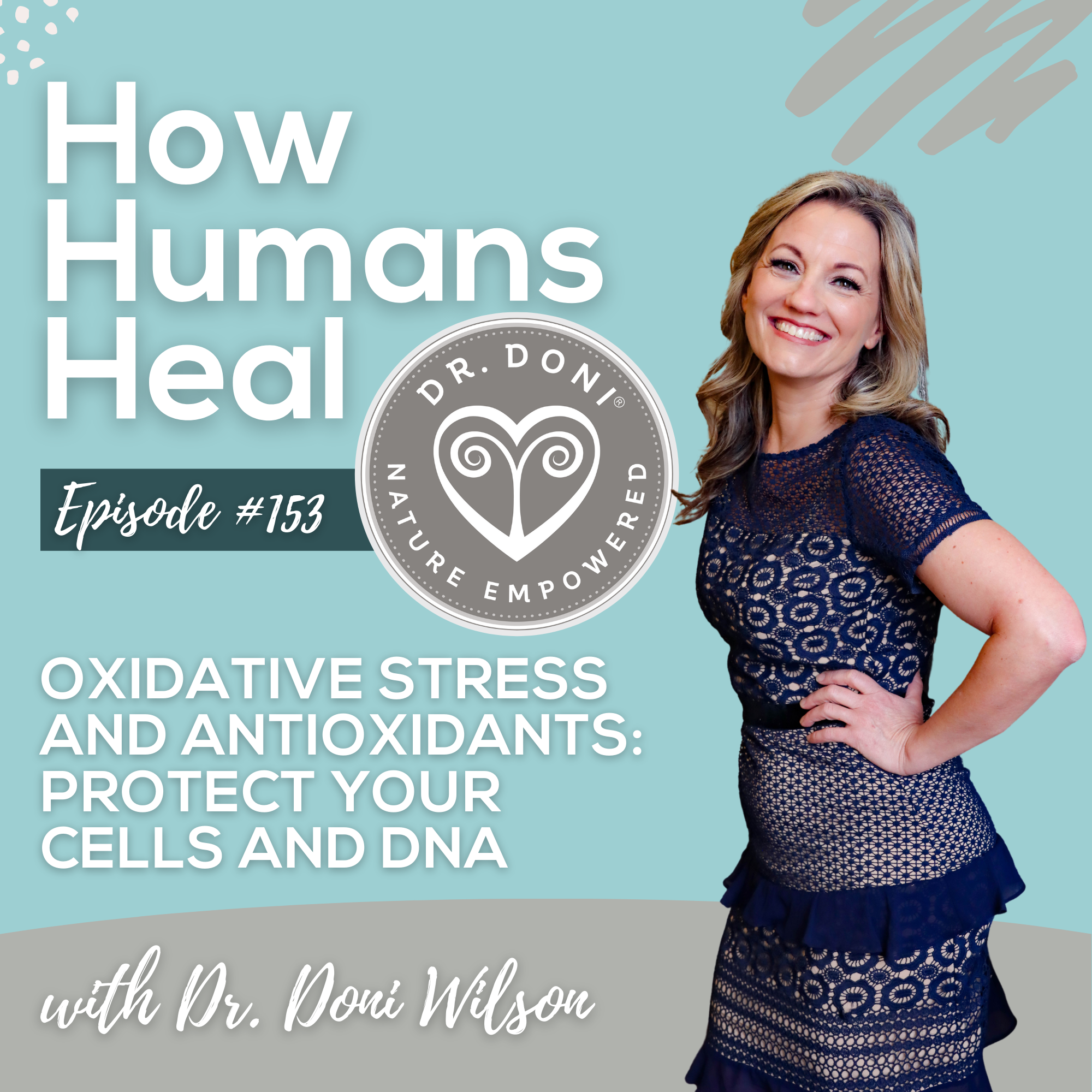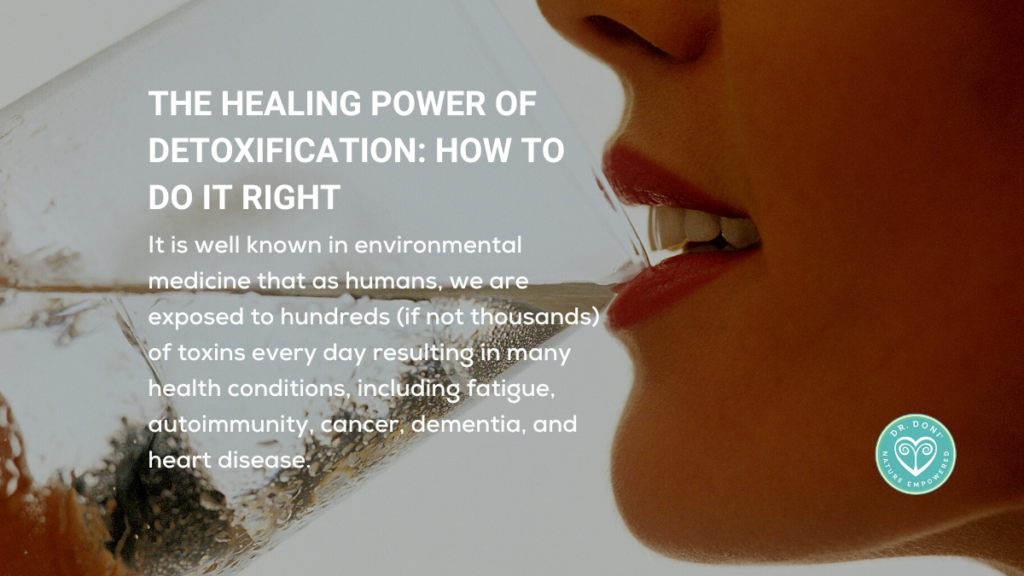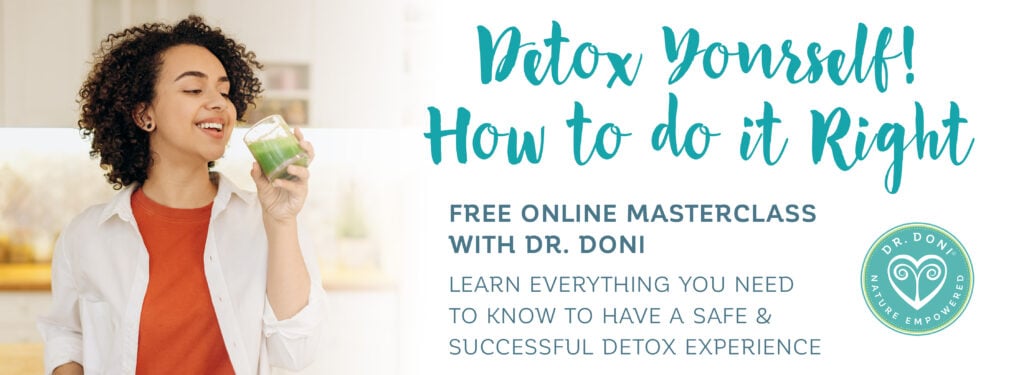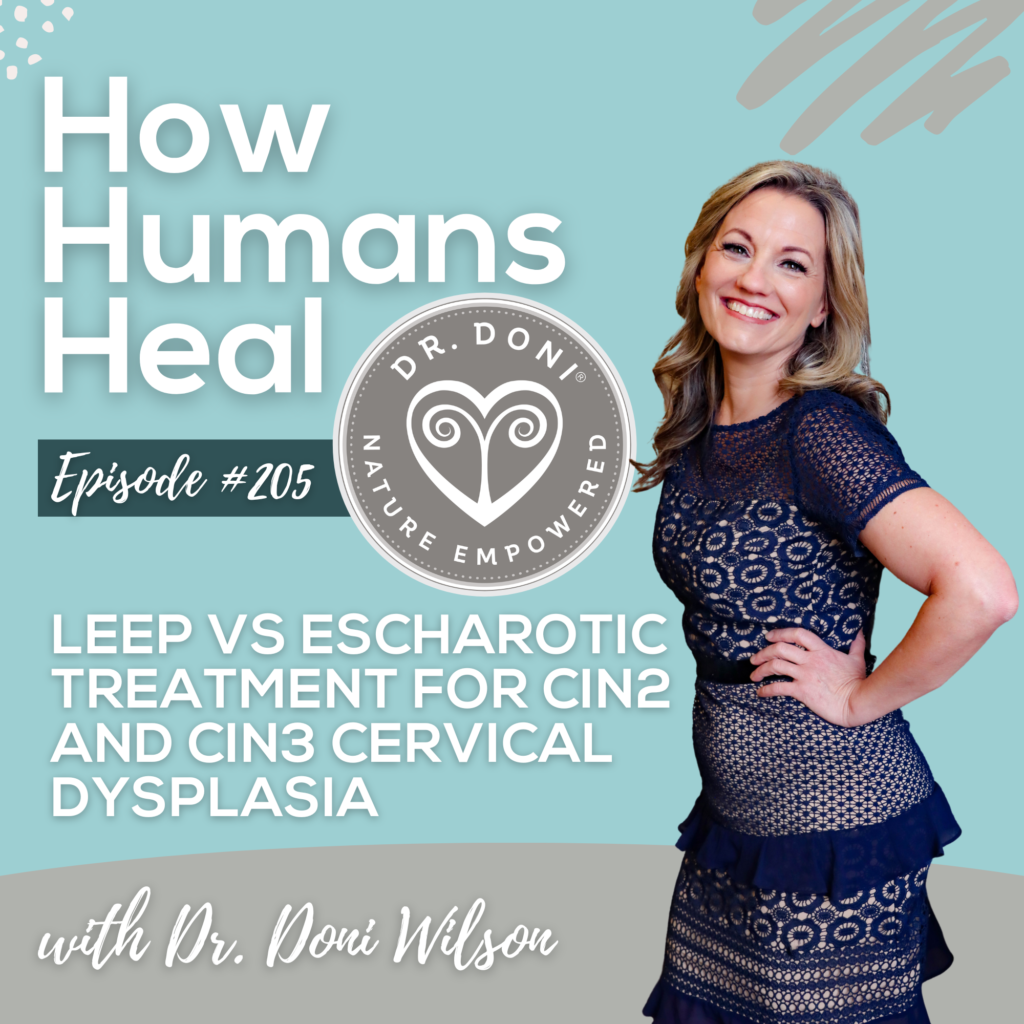

In today’s episode I am going to be talking about oxidative stress. I am really looking forward to diving into this topic with all of you so that you can become experts in understanding your body and why oxidative stress and antioxidants are so important to your health.
What is Oxidative Stress?
As you may know, in my book Master Your Stress Reset Your Health, I talk about all the things we can do to help our bodies recover from stress. Not just stress coming from the external world or emotional stress but also the stress caused inside our bodies (due to toxins exposure for example) which cause imbalances in our systems and even in our cells. And these imbalances increase what I refer to as our internal stress or oxidative stress.
Our bodies naturally have oxidation happening 24/7 in our cells, and again it’s not about avoiding this process but trying to balance it with the opposite or anti-oxidation, so we get our bodies back in balance.
Human bodies run on biochemistry. We have chemical reactions from different substances happening inside our cells constantly. So, what can happen is that in some metabolic processes in our bodies there could be imbalances if we are stressed, and these imbalances create free radicals or unstable molecules that are made during cell metabolism. Free radicals can build up in cells and cause damage to other molecules, such as DNA, lipids, and proteins and this damage may increase the risk of cancer and other diseases. Antioxidants can help stabilize these unstable molecules and get rid of the free radicals and avoid the damage.
How Do Oxidative Stress and Antioxidants Work in Our Bodies?
When we are exposed to stress, even emotional stress or physical trauma, there is a signal sent to our cells that we are in need of more antioxidants to counter act this stress. In science this is referred to as mitochondrial hormesis, which is the body’s response and protective mechanism. It starts increasing mitochondrial function, antioxidants production and detoxification. However, when we are under more stress and toxin exposure, and the mitochondria are too overwhelmed, they can’t create this protective mechanism, and this is why we start feeling worse and worse over time.
Also, when we are exposed to a virus (cold and flu viruses, c*vd virus, HPV and EBV), and there’s an infection, our bodies create more oxidative stress to help kill the virus as a way to protect us. And sometimes these infections leave us with post infection inflammation in our bodies and so we need to help our bodies reduce this post virus effects with antioxidants. Be sure to check out my Immune Support PLUS product as an example supplement containing antioxidants for during and after infections.
So, it’s about balance, it’s about noticing if our bodies need help recovering and that’s where antioxidants can help. As a naturopathic doctor this is what I do, I help people learn how to be as healthy as they can be and in balance, so that when something comes along, we are ready to respond and recover faster.
It’s also important to know that the main organ for helping us manage toxins is the liver. Toxins in our environment, food, air, bodies are all processed through the liver. The way the liver detoxifies is with antioxidants! To some degree, we are genetically unique even down to how our liver handles toxins, so it’s our job to understand and support our bodies in the best way possible.
Where Can We Find Antioxidants?
There are antioxidants (which I like to call cell protectors because they are the ones protecting our cells and DNA from the damage of oxidative stress) that are produced by the human body, like glutathione, but there are others that we need to get from an external source (food or a supplement) like Vitamin C, Vitamin E, Vitamin A, Zinc, Selenium and Beta-Carotene. All these nutrients are required by our bodies in their detoxification and metabolic processes.
When it comes to diet, we can find the best source of antioxidants in colorful fruits and vegetables. Think of greens like asparagus, broccoli, spinach and avocados, which are rich in glutathione for example. And reds or blues like strawberries and blueberries are rich in vitamin C. The antioxidants often give the food a color, and this is why they are emphasized in our diet. Also, plants that are made into beverages, like green tea, or spices like curcumin are full of antioxidants.
The key here is to know how to consume just enough fruits and vegetables for our bodies to be able to digest and get the necessary antioxidants while not overfeeding our gut bacteria. So, it’s about learning how much you can consume at one time without overwhelming your digestion. The more nutrient dense your food, the better, and at the same time you might still need more antioxidants, which is when taking a supplement would be beneficial. If you are following a detoxification program for example, you might need to add antioxidants supplements to your diet to complement it and help your body detoxify.
How Do We Know If We Need More Antioxidants?
One of the ways that we identify we have high oxidative stress is the signs of aging like wrinkles on our skin, gray hair, or memory loss. Also, if you have been diagnosed with abnormal cells (on your cervix or anywhere else on your body) or pre-cancer it is very likely you have high levels of oxidative stress and this is the time to work on balancing your oxidative stress and antioxidants.
Neurological symptoms like tingling, numbness, nerve pain, headaches or migraines are all signs that there is likely some oxidative stress happening. Also, anxiety and depression have been associated with oxidative stress. High blood sugar levels also increase oxidative stress. Another place where oxidative stress happens is in your blood vessels so if you’re worried about heart disease risk or plaque in your blood vessels, it might be a good idea to start balancing your oxidative stress with antioxidants.
How Can We Measure Our Oxidative Stress?
If you want to know the levels of antioxidants in your body there are specialty labs that run micronutrient panels which tell you from A to Z the levels of nutrients, minerals, and antioxidants. This is a specialty blood test that I can order for patients to identify which antioxidants they are lacking and so we can create a plan to raise them. It is better to test instead of guess, so we know when you’re taking a supplement that we are addressing a deficiency, and this is different for everybody.
There is also a urine test called 8-OHdG which is considered a biomarker for oxidative damage of DNA and that measures the level of oxidative stress in your body. There is another urine test called an organic acid panel which assesses different metabolites in the body and shows signs of toxins in your body, like toxins from imbalanced gut bacteria and yeast in the digestion. It will also show imbalances in your metabolism, in your neurotransmitter metabolism, and in your antioxidant and detoxification levels. I can also help you get these tests from specialty labs (they are not done at regular labs).
Another sign that your oxidative stress is high is fatigue and brain fog. We first start with the essentials and see if you have anemia or low thyroid function for example, and if those are ok and yet you still feel tired and have brain fog, we start analyzing whether you have had toxin exposure. We can test for environmental toxins, mold toxins, and metals to identify whether they are playing a role in your health issues. It’s a matter of changing the balance: to decrease the input of toxicity and increase your ability to detox and counteract toxins.
If you have imbalanced gut biome for example and you have overgrowing bacteria that are producing toxins and raising the oxidative stress in your body, you can take antioxidants, but we also need to address the overgrown bacteria. We can do this by following an antimicrobial protocol with herbs that help address these bacteria. Then we make sure to get all the toxins out of your body safely and effectively without making you feel worse.
Antioxidants and Detoxification
A lot of times when people think of detoxification or cleanse, they think they are going to feel worse, and many times this is the case if you do not do it correctly and in a safe way. It is better to stabilize the body before following a detox. It is much better to have stable electrolyte levels, stable blood sugar levels, stable sleep, hormones, and regular bowel movements. Get the basics functioning correctly and then we can start to add in gentle detoxification by giving the liver the nutrients it needs to be able to detoxify better.
In a clinical detoxification process, it’s very important to know which toxins we are trying to get out because not all toxins have the same exit route. There are certain nutrients and herbs we can use for a general detox, but if we are concerned about a specific type of toxin, we need to use the correct nutrient or binder to get the toxin out of the body. In some cases, more glutathione is needed, and in others, certain kinds of binders, like fiber are used.
I prefer to tailor your detoxification process to your unique body for it to be effective and safe, and to make you feel better, not worse. I encourage you to be mindful about how you support your body to detoxify in the best and most gentle way possible.
Our human bodies are about balance, so we need to identify when things are out of balance and what we can do to get them back to balance.
I am teaching a free detox masterclass so if you would like to learn more about this you can sign up here. We are going to be talking through how to know if you need a detox, what are the best things to include in a detox, what are the things to not include in a detox, and what are some options for supporting you through a gentle and yet effective detoxification program.
If you want to get started with a detox program, you can check out my new 14-Day Detox Program, which I designed based on my experience in an Amazon Retreat with a Shaman, and I wanted to bring this back to you so that you can do this from home and experience the benefits of getting back to taking good care of yourself, getting back to balance and learning how to support your body to heal without needing to leave your day to day schedule.
Also, I just published a blog post about the health risks of common household toxins and how to safely detoxify in a way that’s easy on your body.

And remember that we can do a detox for a period of time but ultimately, we need to be thinking about how do we maintain our health every day of the year and a lot of that has to do with understanding the stresses and toxins that we are exposed to at different levels and what does your body need to help counterbalance that stress and prevent this oxidative stress. By preventing oxidative stress, you are preventing all kinds of different health issues and you are also improving your longevity.
If you want to learn more about my approach on how you can start taking better care of yourself and apply my SelfC.A.R.E. protocol so that you can get back to feeling your best, you may want to start by reading my book Master Your Stress Reset Your Health.
In my book, I also share the quiz I developed to help you identify how stress has affected you specifically by knowing your Stress Type. You can also take this Stress Type Quiz online.
For the most comprehensive support to recover from stress and trauma, even with the most difficult health issues (physical or mental), it is best to meet with me one-on-one, which is available to you no matter where you are in the world (via phone or zoom). You can set up a one-on-one appointment with me here.
We’re here to help you!

Connect with Dr. Doni:
- Facebook https://facebook.com/drdoniwilson
- Instagram https://instagram.com/drdoniwilson
- YouTube https://youtube.com/DoniWilsonND
- Newsletter: https://doctordoni.com/www (Weekly Wellness Wisdom)
- Podcast: https://doctordoni.com/podcast (How Humans Heal)
More Resources from Dr. Doni:
- Stress Type Quiz: Assess your adrenal function
https://doctordoni.com/quiz - Dr. Doni’s Book: Master Your Stress, Reset Your Health
https://doctordoni.com/book - Dr. Doni’s Facebook Group: Stress Warrior Stress Resiliency
https://facebook.com/groups/stresswarrior - HPV Recovery Guide (FREE)
https://doctordoni.com/ddpp/hpv-guide/ - FREE Masterclasses with Dr. Doni
https://doctordoni.com/masterclasses - FREE Guides from Dr. Doni
https://doctordoni.com/guides
Personalized Solutions:
- 14-Day Detox Program: You can start this transformation program anytime
https://doctordoni.com/detox-program - Say Goodbye to HPV (12-week Program): Begin the journey to freedom from HPV today!
https://doctordoni.com/hpv-12-week - If you’d like to meet with Dr. Doni one-on-one for your health, request a Health Breakthrough Session: https://doctordoni.com/breakthrough
Disclaimer: This specific article and all other Content, Products, and Services of this Website are NOT intended as, and must not be understood or construed as, medical care or advice, naturopathic medical care or advice, the practice of medicine, or the practice of counseling care, nor can it be understood or construed as providing any form of medical diagnosis, treatment, cure, or prevention of any disease.
Share this Post:
Dr. Doni Wilson
14 Day Detox Program
Take the Stress Type Quiz
Dr. Doni Social Media
Popular Posts


The 5 Burnout Types

Healing HPV Holistically: Dr. Doni on the Inspire Health by Jen Podcast

Recent Podcasts
Signup to receive our weekly newsletter with all the latest news, podcasts and special offers
New Book - Order Today!

SIMPLE PRACTICES for SHIFTING FROM YOUR STATE of STRESS to YOUR FLOW and FREEDOM
MASTER YOUR STRESS
RESET YOUR HEALTH
Order Now! Related Posts

What is making you susceptible to HPV?
I have been working with women who had abnormal cells on their cervix and/or vaginally, caused by HPV for over 20 years now. And while

The 5 Burnout Types
Did you know there are 5 burnout types? They are based on your Stress Type®, which is how your adrenal function has been affected by

Healing HPV Holistically: Dr. Doni on the Inspire Health by Jen Podcast
Dr. Doni was interviewed by Jen Ciszewski on the Inspire Health by Jen Podcast, talking about how to heal away HPV from your body for good.

Stress and Trauma: The Science Behind It, How It Shows Up and How to Heal: Dr. Doni on The Burn Fat and FEAST Podcast
Dr. Doni was interviewed by Sarah B. Thomas on the Burn Fat and FEAST Podcast, talking about the impact of stress and trauma on our health and what to do to recover from them.















